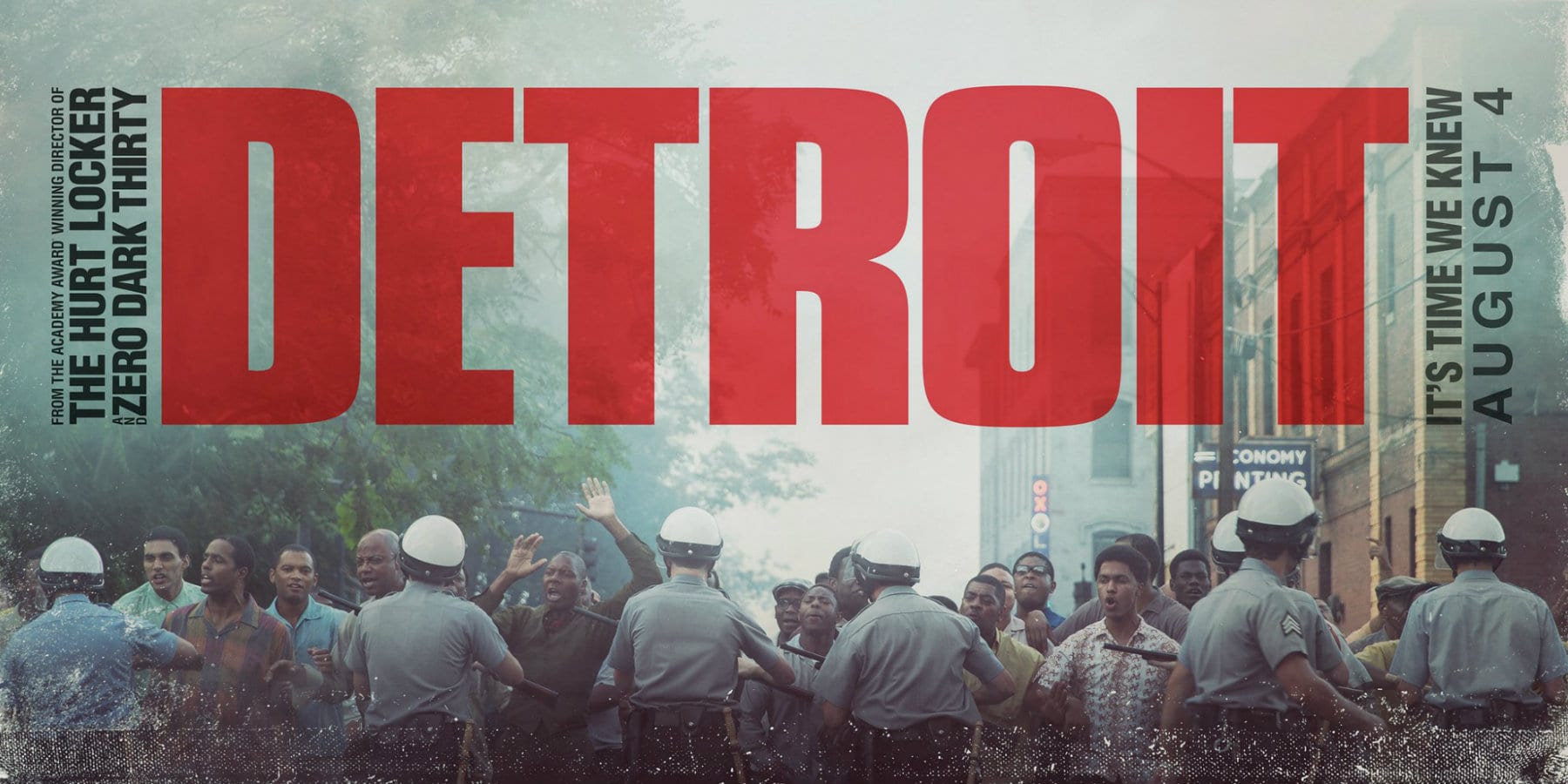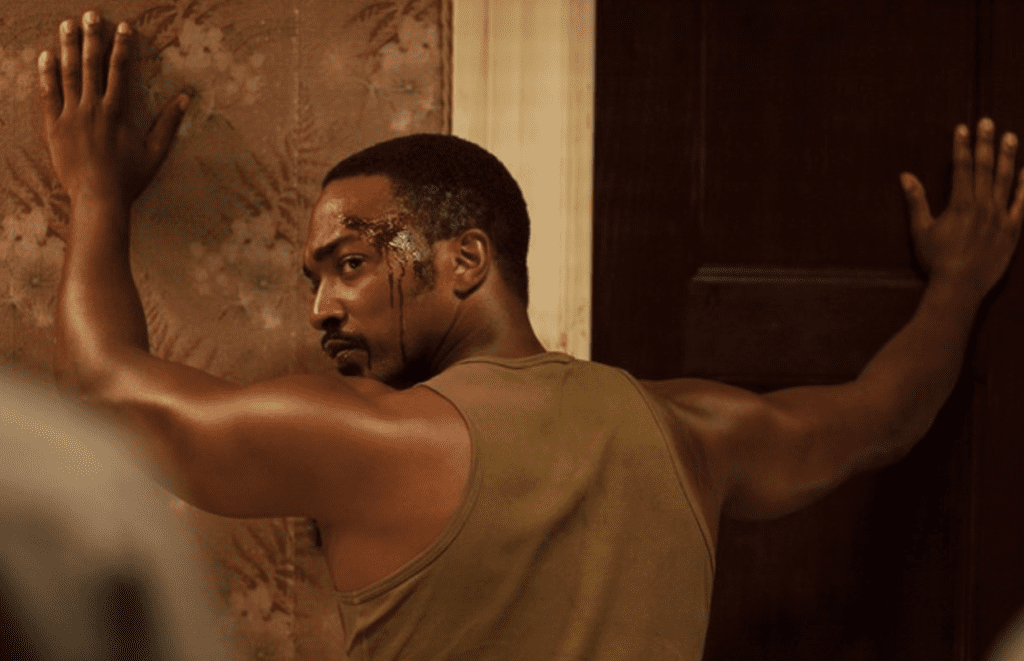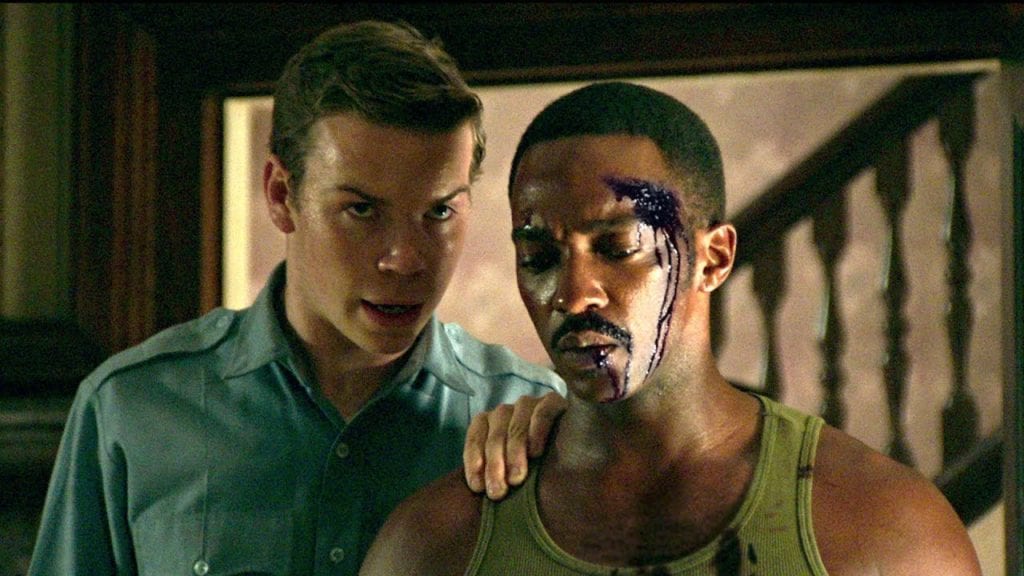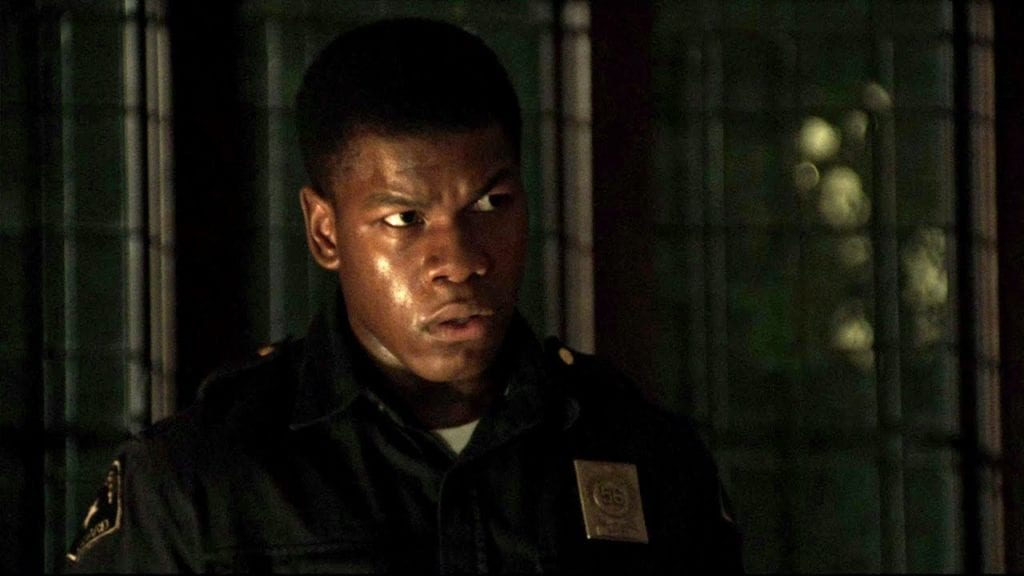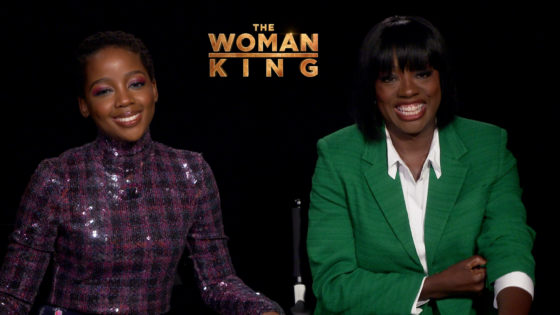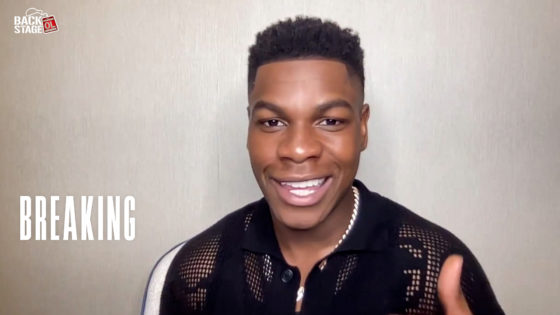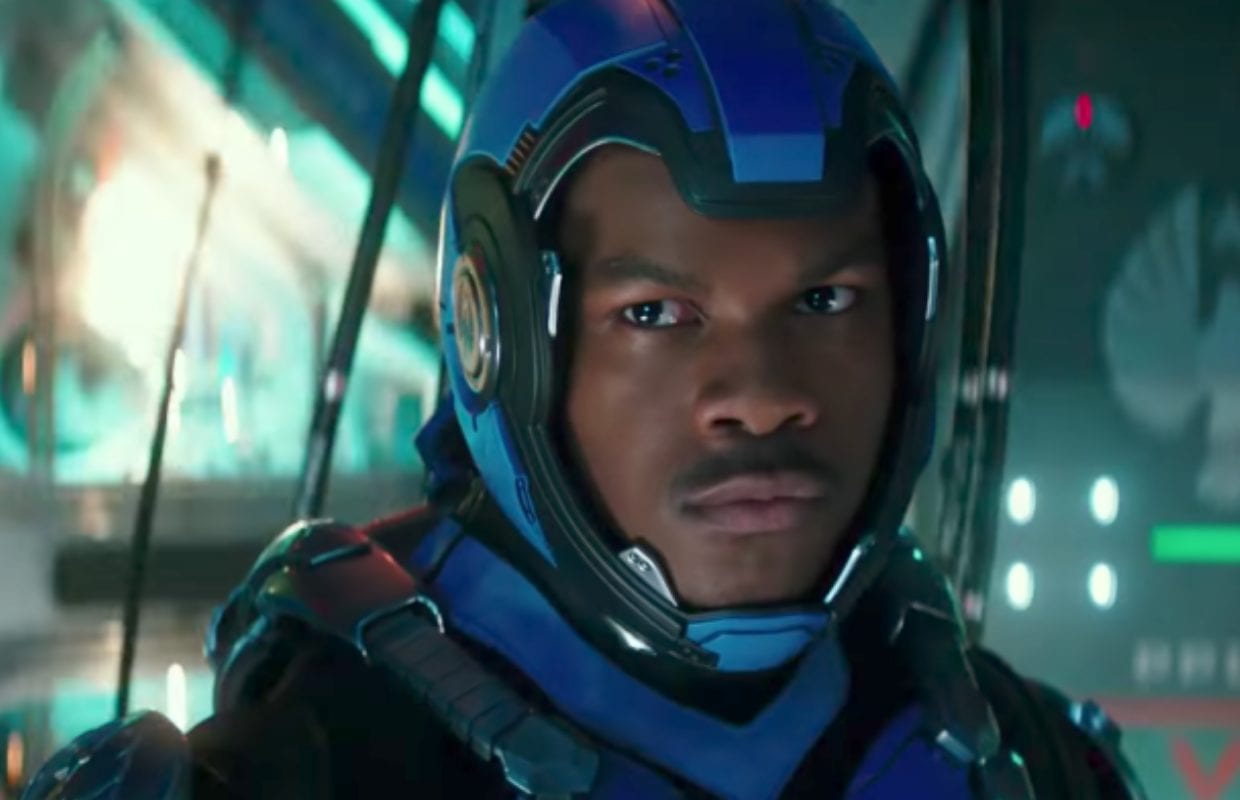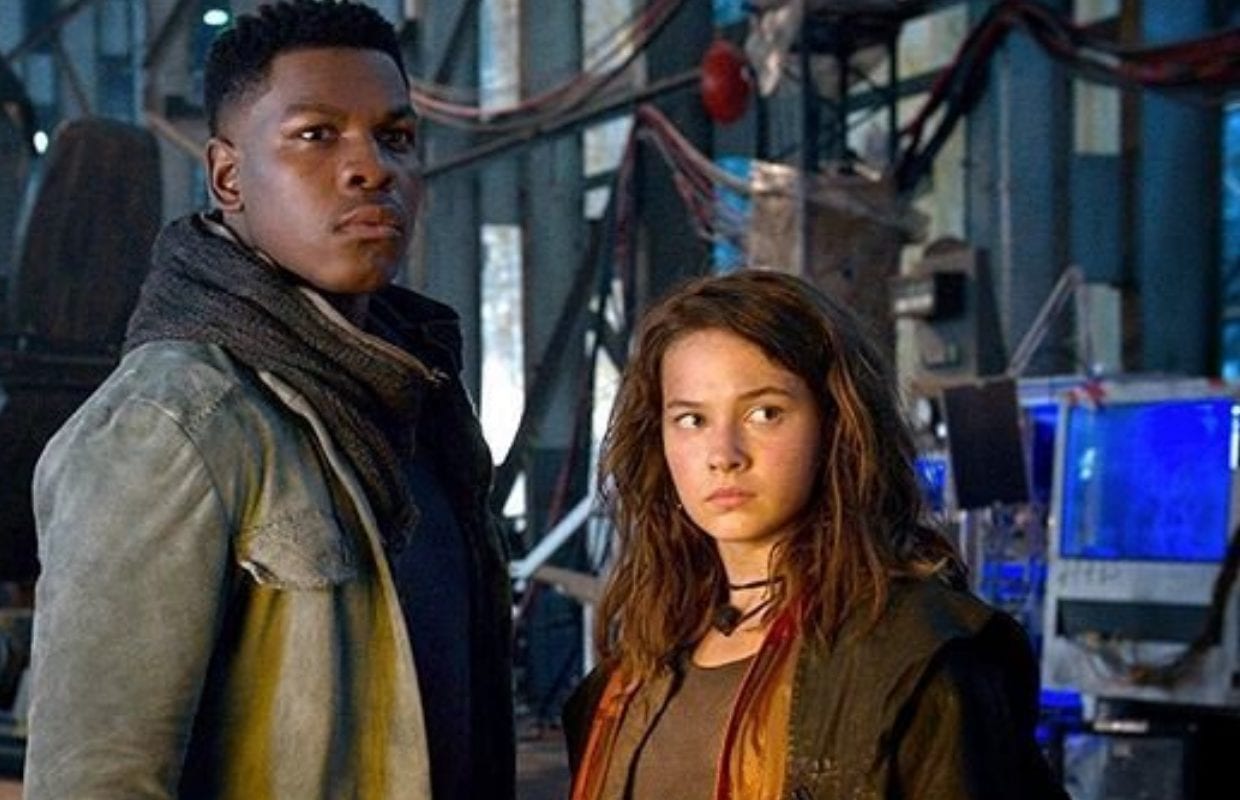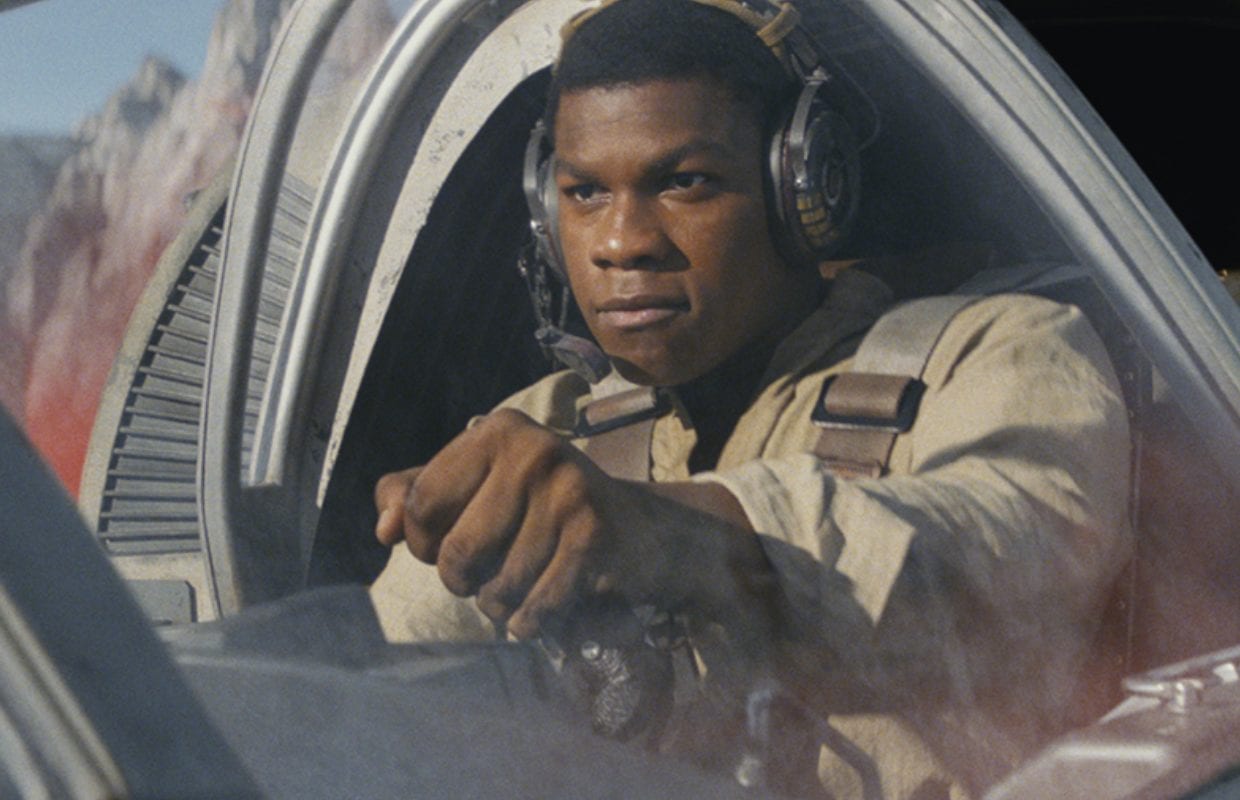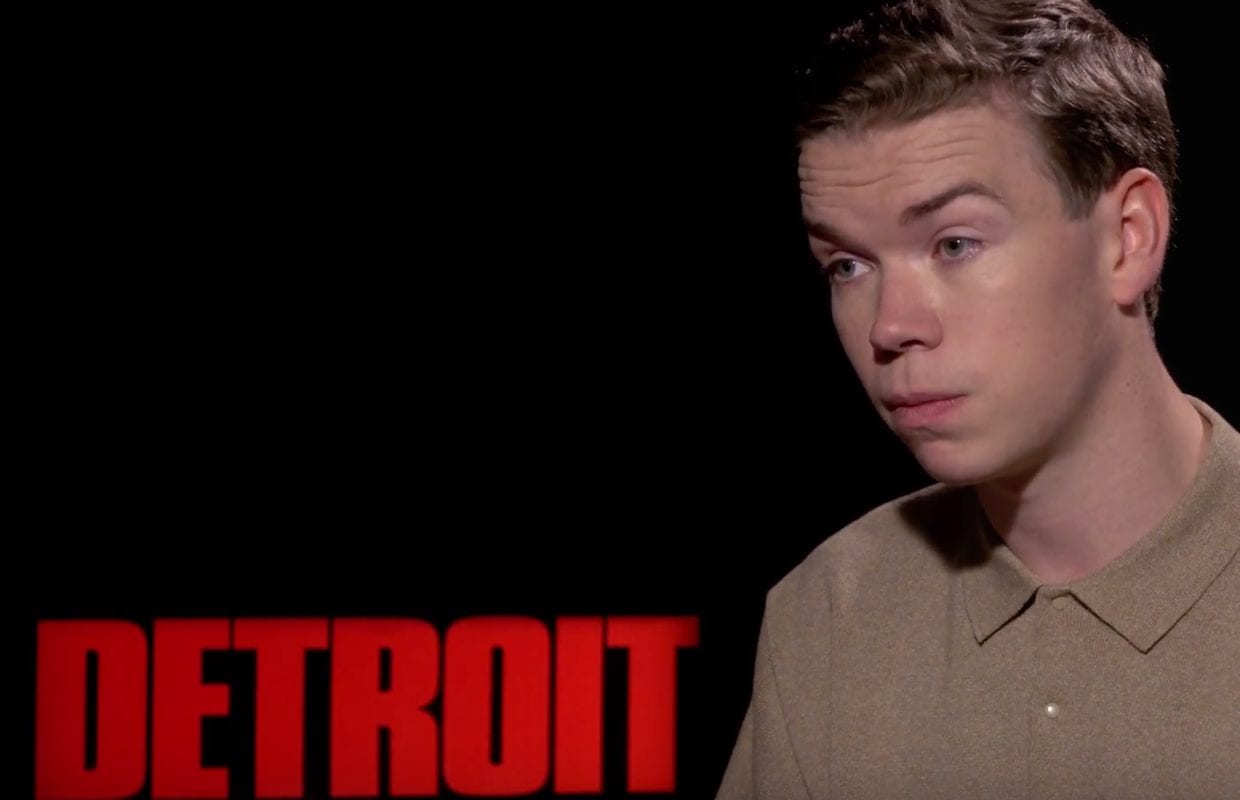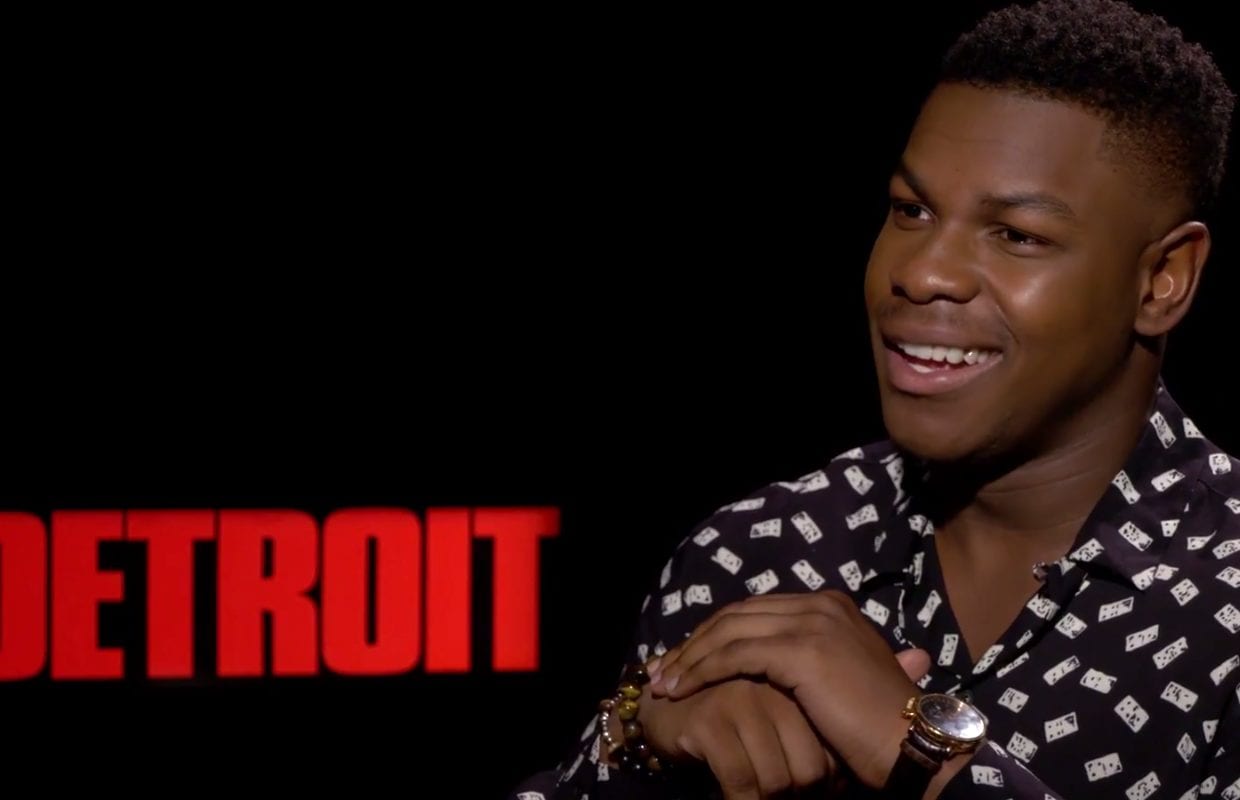A common practice after attending a movie screening is to give your impressions to a studio rep. The rep will then take those reactions and submit a report. The problem is that initial impressions can carry an overriding sense of euphoria – if the film is good – where critics are prone to be hyperbolic about what they just viewed. This can lead to a great quote for advertising. However, given enough time and space and reflection, that gut reaction can lead to indigestion, er, second thoughts.
Advertising will lead audiences to believe that Detroit is a hardcore masterpiece. I don’t even know what that phrase means. Kathryn Bigelow’s docudrama about civil unrest in July 1967 Detroit is a disturbing piece of cinema but for all the wrong reasons. A city renowned for its distinct Motown sound, where soul music with pop influence was a crossover success among races, the film, sadly, lacks what should be its very essence, a soul.
Two decades after the end of the Second World War, the United States was going through a racial revolution with persons of color fighting for civil rights. The goal to end segregation and discrimination would lead to marches and peaceful protests but also riots. Detroit’s “12th Street Riot”, which lasted five days and caused hundreds of millions in property damage, ended with forty-three persons dead. Bigelow, again working with her Zero Dark Thirty collaborator Mark Boal, directs her attention to this moment in history to recount one particular event that occurred during the Detroit riots, the “Algiers Motel Incident”.
During the night of July 25, 1967, the Algiers Motel was raided in response to shots fired from an upstairs window. A contingent of law enforcement officers (local and state cops and national guardsmen) enter into the establishment known for drug dealing and prostitution to locate the shooter and the weapon. One person dies trying to run out a back room and the remaining nine – seven black men and two white women – are left to be terrorized by three of Detroit’s Finest, all white. Having clearly crossed the line, the remaining law officers stand back. Some leave the scene altogether. Those who stay are silent observers to the interrogation, which involves malevolence and psychological torture. Something Officer Krauss (Will Poulter) calls the “death game”.
The sequences inside The Algiers serve as Detroit‘s second and longest act. They are the centerpiece of this saga and race and police brutality, bridging how the riots began and the legal ramifications in the aftermath. Kathryn Bigelow showed in Zero Dark Thirty the so-called “enhanced interrogation” methods that the CIA implemented to extract information in finding Osama bin Laden. But the ugliness that unfolds for a wide stretch in her latest is bred on hate and force of power.
It is not my job to ask why a filmmaker should choose to structure a narrative around such a bleak moment in history, where racism and police brutality are clearly the driving force. I can wonder if the images, tough to stomach, of white officers clearly accosting African-Americans with barbarous methods, are pointedly done to stimulate a certain response. The images are cruel with Barry Ackroyd’s lensed fly-on-the-wall visuals getting us that much closer to every gun barrel shoved against a black man’s head, death just a trigger pull away. Visceral and disgusting for sure, but what is the cost when the stimulated reactions are of the violence inflicted? Sadly, Bigelow and Boal are so restrictive with trying to be historically accurate they fail to make a statement. Unless it’s simply to visually reiterate “those who cannot remember the past are condemned to repeat it.” Thank you very much, George Santayana.
When talking with the cast, BackstageOL.com’s Dave Morales elicited this response from star John Boyega on what will be the general audience conversation about the film.
“The conversation is going to be very complicated, but I just hope it is in the spirit of moving forward and I hope it is in the spirit of unity.”
That complication almost mirrors the character Boyega plays in the film, Melvin Dismukes, a local security guard. He ends up helping the cops in their investigation (not in as far as interrogating suspects) and is complicit in their actions. As the rights of nine tenants are being trampled upon, Dismukes is in a complex situation as a black man standing watch to such atrocities.
Will Poulter as Krauss, the ringleader of the cops at The Algiers, is savage and unforgiving. Full of vitriol towards persons of color, Krauss takes pleasure in his position of power as he inflicts pain and suffering. Poulter is scary as hell in the role. It’s just a shame the character is lifeless; we see the horrors but learn nothing about the man.
Detroit has several characters but only one has a full arc. That would be up-and-coming Motown singer Cleveland Larry Reed, played by Algee Smith. In a film lacking soul it is Larry’s soulfulness and carried grief that sticks with you far longer than the physical abuse. When a breakout moment at Detroit’s famed Fox Theater is canceled due to rioting in the streets, Larry and his friend Fred Temple (Jacob Latimore) make their way home. Because it is not safe to walk the streets at night the two take refuge at The Algiers. The events that night have a transformative effect on those involved, yet it is through Larry and his dashed aspirations where emotional wounds sting the most.
Kathryn Bigelow is a very skilled filmmaker with a keen visual eye. Woefully, her eye is color blind in presenting a story of race, suppression of rights, and police brutality. In the case of remaining silent and having pictures tell the story, perhaps a thousand words would have been better.
Director: Kathryn Bigelow
Writer: Mark Boal
Starring: John Boyega, Will Poulter, Anthony Mackie, Algee Smith, Jacob Latimore, John Krasinki
Running Time: 143 minutes
Rating: R (for strong violence and pervasive language)



